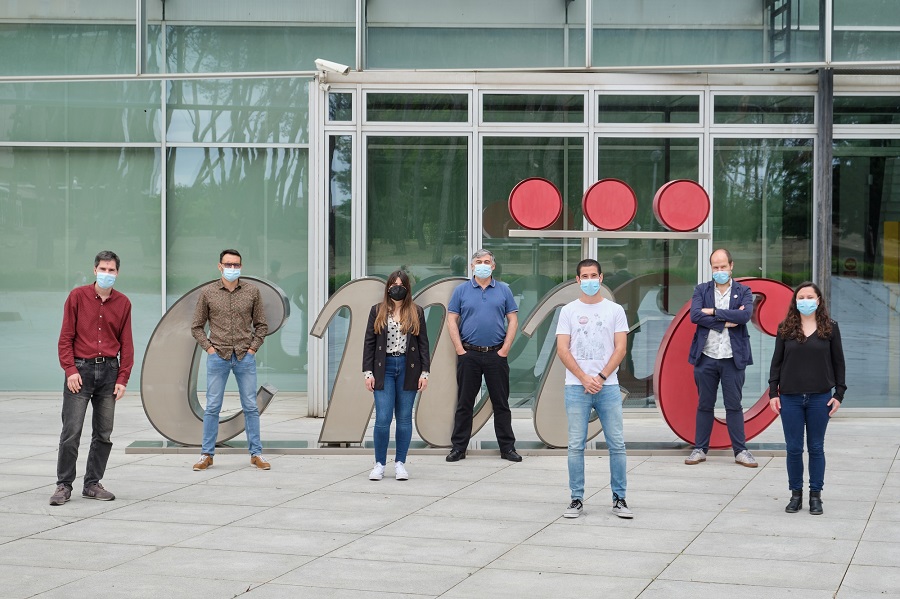JITC: CNIC scientists discover a new strategy to improve cancer immunotherapy
Scientists at the Centro Nacional de Investigaciones Cardiovasculares (CNIC) have designed a new strategy to potentiate immunotherapy, the treatment that has revolutionized cancer management
Scientists at the Centro Nacional de Investigaciones Cardiovasculares (CNIC) have designed a new strategy to potentiate immunotherapy, the treatment that has revolutionized cancer management. In the study, published today in the Journal for Immunotherapy of Cancer, the team led by Dr. David Sancho identifies a mechanism through which dead tumor cells stall the response of the immune system, reducing the antitumor capacity of immune cells that attack cancers.
The scientists improved the efficacy of cancer immunotherapy through an approach that combines blocking antibodies with cytokines or chemotherapy treatments that promote the development of dendritic cells. The team believe that this approach can be transferred to the clinic to optimize cancer immunotherapy.
Immunotherapy consists of reprogramming the immune system to recognize and eliminate tumor cells. “Cancer is not simply the uncontrolled growth of a mass of cells; the tumor is surrounded by a number of constituent elements that form the tumor microenvironment,” said Carlos del Fresno Sánchez, whose work at the CNIC was funded by the Asociación Española Contra el Cáncer and who is now a Miguel Servet fellow at the Instituto de Investigación del Hospital la Paz (IdiPAZ).
Unfortunately, not all patients benefit from this approach, because many cancers develop mechanisms to evade the immune system. One of these mechanisms consists of impeding the migration of immune cells to the tumor microenvironment. “The immune system has the ability to enter the tumor and eliminate it, thus improving patient prognosis. However, this does not always happen, and the aim of this project was to strengthen this capacity,” explained study coordinator Dr. David Sancho, who heads the Immunobiology laboratory at the CNIC.
The study shines a light on the mechanisms that promote correct infiltration of the tumor by antitumor immune cells and proposes a new strategy to potentiate this infiltration in antitumor immunotherapy
Study first author Francisco Cueto added that “the type of immune cells that enter the tumor has a major influence on cancer patient survival. Survival is higher after infiltration by CD8 T cells, which eliminate tumor cells, and by dendritic cell subtypes that attract and activate CD8 T cells.” Scientists in the field have therefore focused their efforts on developing methods to increase the numbers of these cells in the tumor microenvironment.
Immune cells have an extensive repertoire of receptors through which they interact with their environment, allowing them to recognize pathogens and also detect tissue damage. Dr. Sancho’s team recently showed that the detection of dead cells by the receptor DNGR-1, expressed on dendritic cells, prevents excessive inflammation. In cancer, this action can cause more harm than good. “High immune-cell infiltration of the tumor microenvironment will promote tumor elimination by the immune system,” said Dr. Sancho.
Dendritic cells form part of the innate immune system, the body’s first line of defense. The presence dendritic cells in the tumor environment “goes a long way to ensuring an immune response against the tumor that will improve patient prognosis,” said Dr. Fresno.
In the new study, the scientists found that the recognition of dead tumor cells through DNGR-1 expressed on dendritic cells prevents further infiltration of both dendritic cells and the tumor-eliminating CD8 T cells, thus preventing the immune system from attacking the tumor. The researchers managed to increase the efficiency of antitumor immunotherapy by using blocking antibodies in combination with cytokines or chemotherapy to promote dendritic cell development.
Immunotherapy is the reprogramming of the immune system to recognize and eliminate tumor cells; however, this approach does not work in all patients because many cancers develop mechanisms to evade the immune response
The research shows that the antitumor activity of dendritic cells can be promoted through targeted interventions. The first of these is the administration of the cytokine Flt3L, and the second is antibody blockade of DNGR-1. Flt3L acts as a ‘stimulant’, increasing the numbers of dendritic cells and promoting their entry into the tumor microenvironment. The team also found that circulating levels of Flt3L can be increased by stimulating the body’s own production of the cytokine with specific chemotherapy treatments.
According to Francisco Cueto, “increased infiltration of immune cells into the tumor will improve the response to immunotherapy.” The new study shines a light on some of the mechanisms that promote correct tumor infiltration by antitumor immune cells and proposes a new strategy to potentiate this infiltration and antitumor immunotherapy. The study thus identifies a new tool for combating cancer by strengthening the body’s own defense.
The study was funded by the Fundación “la Caixa”, the Asociación Española contra el Cáncer (AECC), the National Institute for Health Research Manchester Biomedical Research Center, the European Research Council (ERC-2016-Consolidator Grant 725091), the European Commission (635122-PROCROP H2020), the Ministerio de Ciencia, the Agencia Estatal de Investigación (AEI), the European Regional Development Fund (ERDF) (SAF2016-79040-R), the IMMUNOTHERCAN de la Comunidad de Madri, a FIS-Instituto de Salud Carlos III grant, the Fundación Acteria, Atresmedia (Constantes y Vitales), and Fundació La Marató de TV3.











